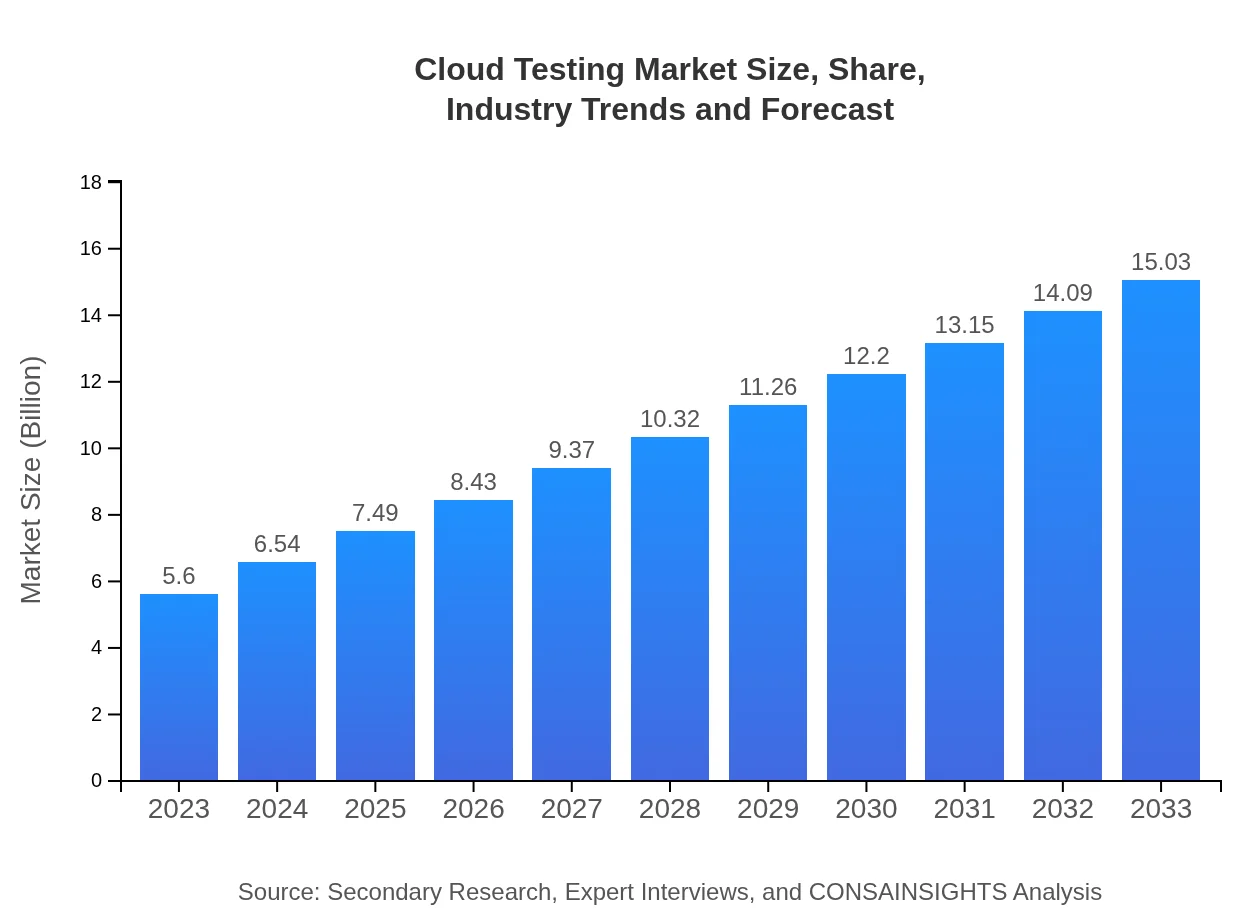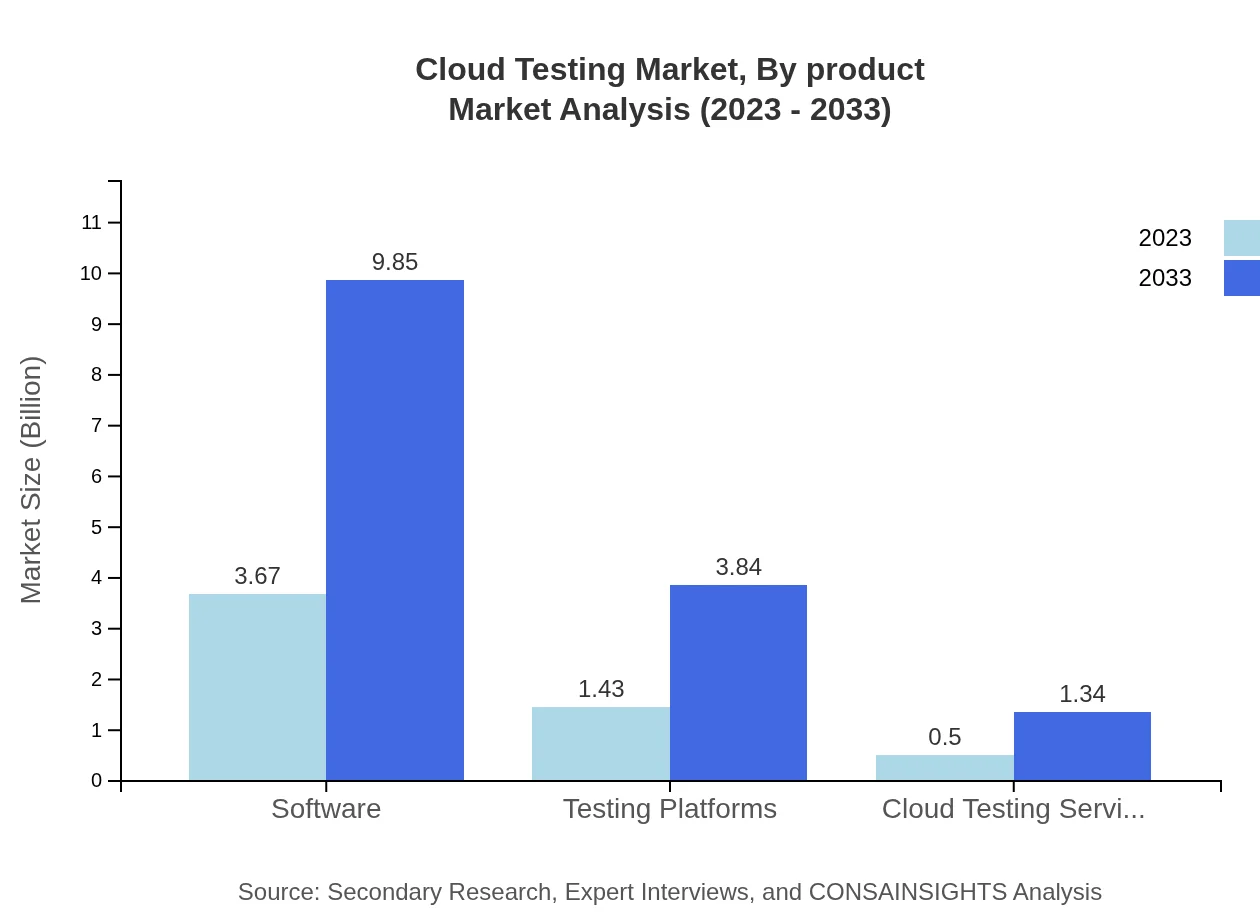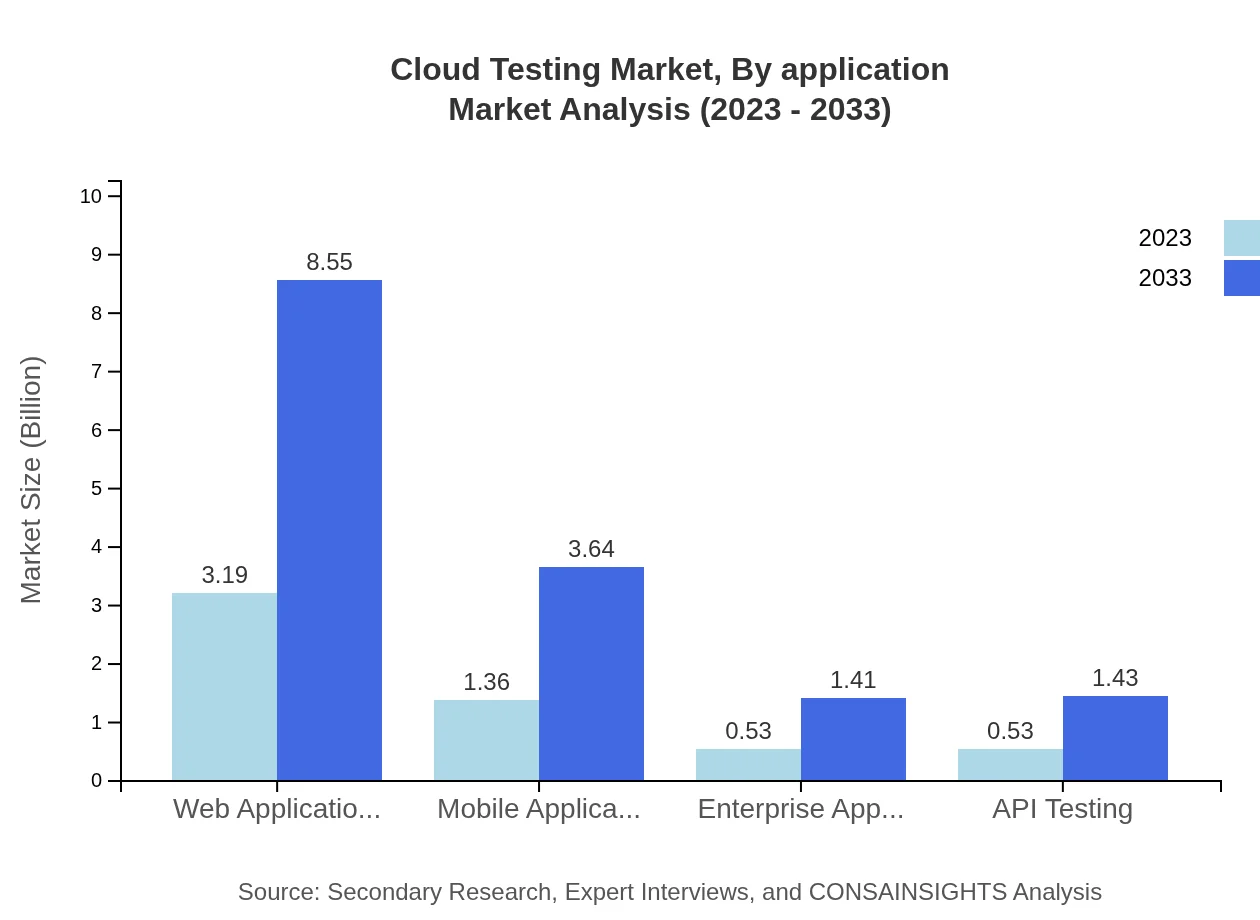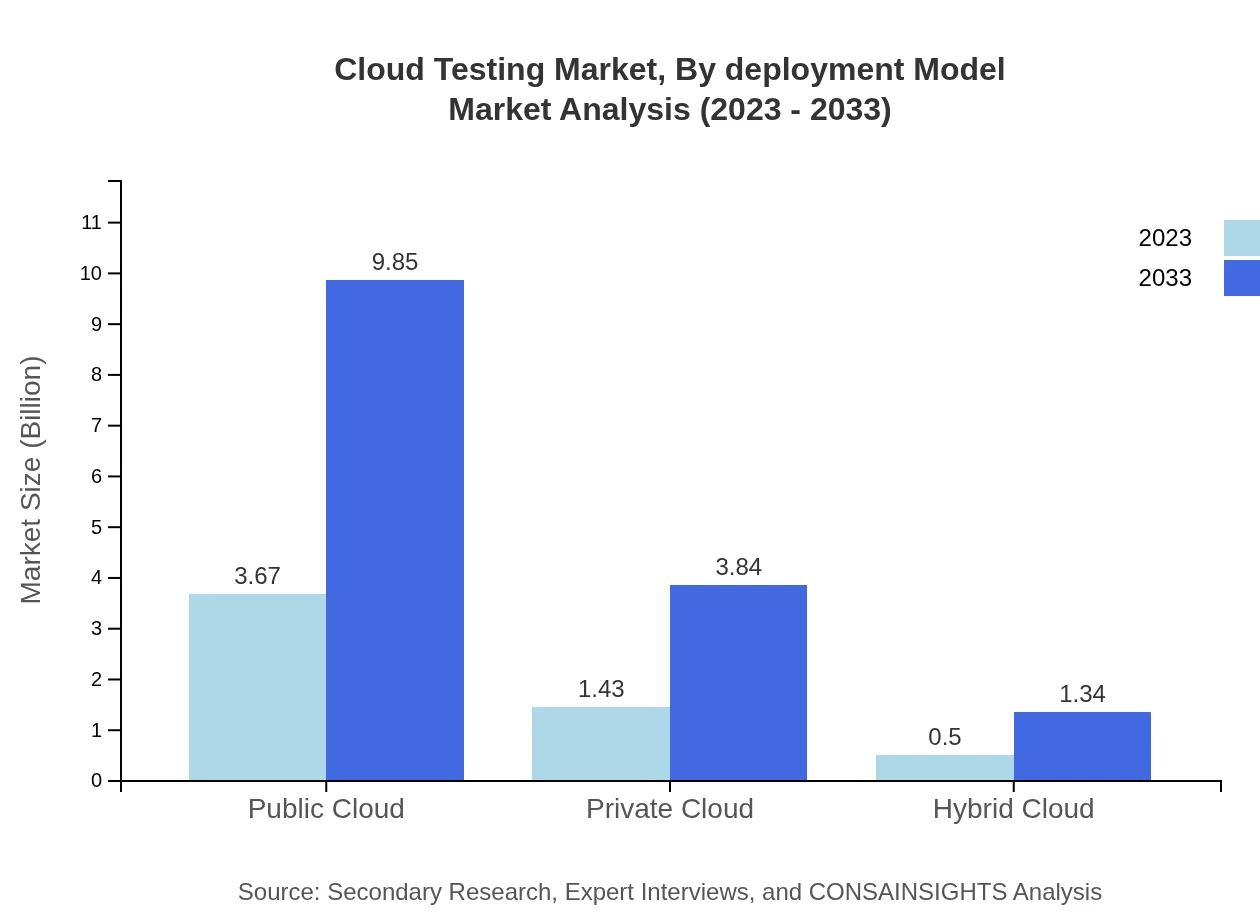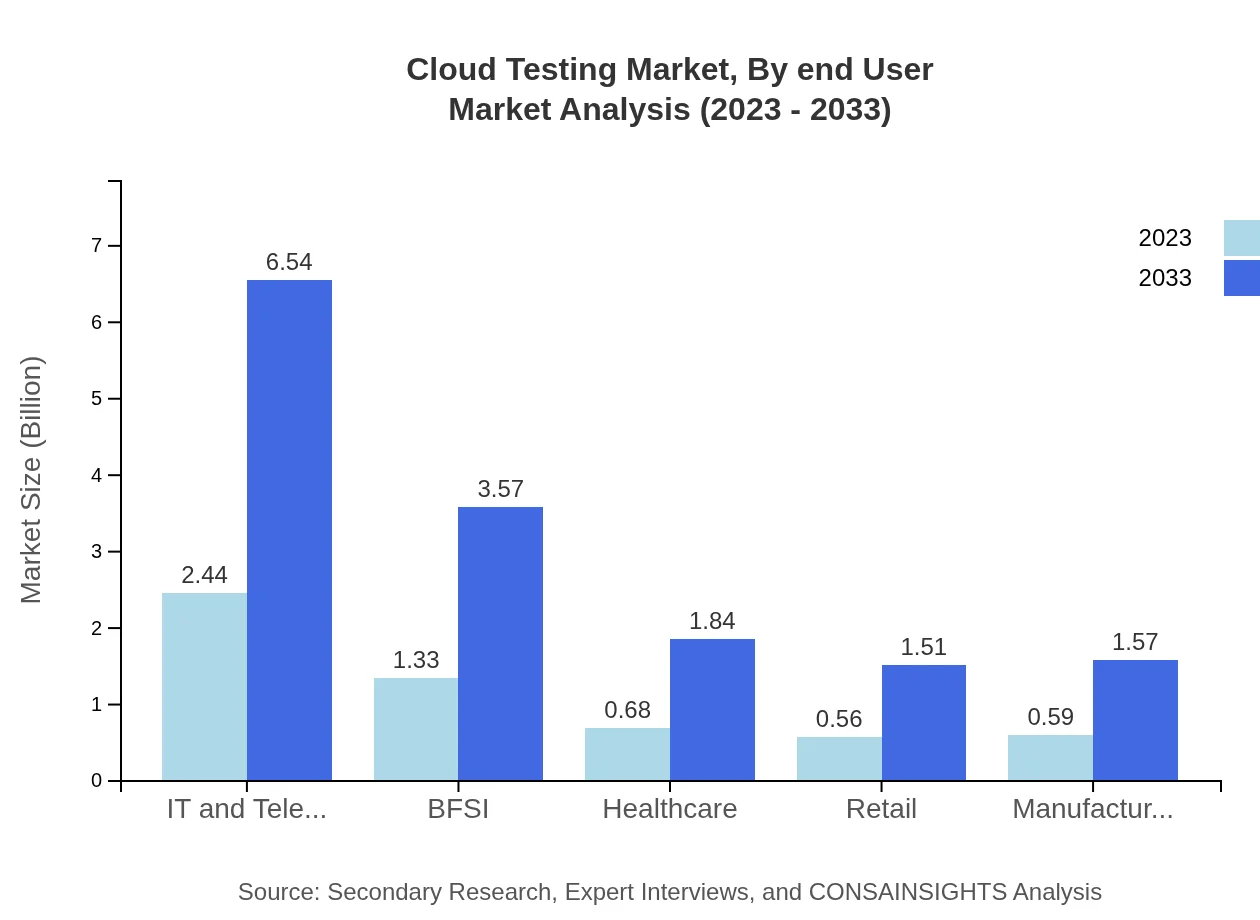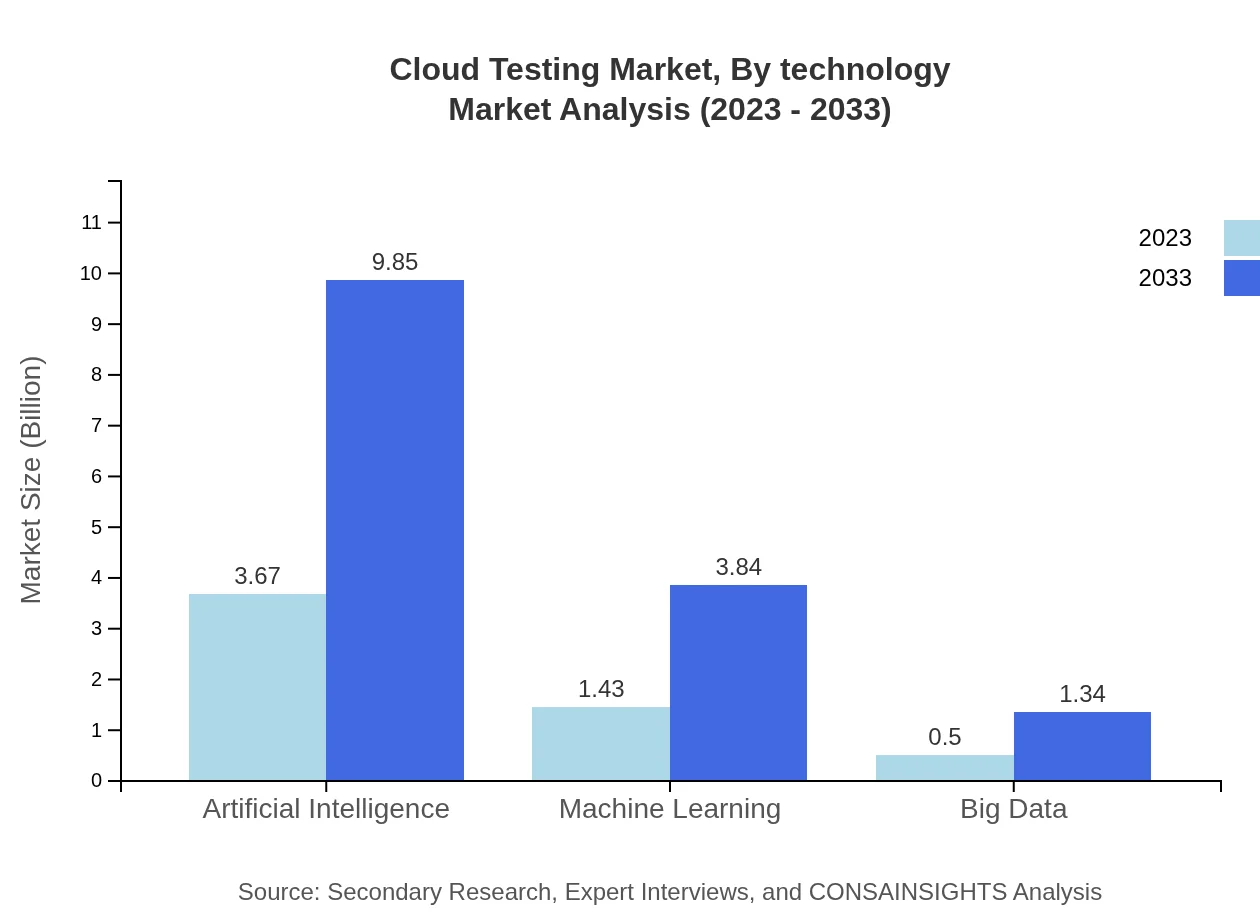Cloud Testing Market Report
Published Date: 31 January 2026 | Report Code: cloud-testing
Cloud Testing Market Size, Share, Industry Trends and Forecast to 2033
This report provides a comprehensive analysis of the Cloud Testing market from 2023 to 2033, including insights on market size, growth trends, regional performance, and key players to equip stakeholders with the necessary information for decision-making.
| Metric | Value |
|---|---|
| Study Period | 2023 - 2033 |
| 2023 Market Size | $5.60 Billion |
| CAGR (2023-2033) | 10% |
| 2033 Market Size | $15.03 Billion |
| Top Companies | Micro Focus, SmartBear, Tricentis, Sauce Labs, BrowserStack |
| Last Modified Date | 31 January 2026 |
Cloud Testing Market Overview
Customize Cloud Testing Market Report market research report
- ✔ Get in-depth analysis of Cloud Testing market size, growth, and forecasts.
- ✔ Understand Cloud Testing's regional dynamics and industry-specific trends.
- ✔ Identify potential applications, end-user demand, and growth segments in Cloud Testing
What is the Market Size & CAGR of Cloud Testing market in 2023?
Cloud Testing Industry Analysis
Cloud Testing Market Segmentation and Scope
Tell us your focus area and get a customized research report.
Cloud Testing Market Analysis Report by Region
Europe Cloud Testing Market Report:
In Europe, the Cloud Testing market is valued at $1.66 billion in 2023 and anticipated to reach $4.45 billion by 2033. The region's stringent regulatory requirements and a proactive approach towards adopting integrated cloud-based solutions accelerate market demand.Asia Pacific Cloud Testing Market Report:
In 2023, the Asia Pacific Cloud Testing market is valued at $1.16 billion and expected to grow to $3.1 billion by 2033. The region is experiencing swift technological advancements and a surge in digital transformation initiatives across countries like India and China, leading to increased investments in cloud testing solutions.North America Cloud Testing Market Report:
North America holds a significant share of the Cloud Testing market, valued at $1.88 billion in 2023 and expected to grow to $5.06 billion by 2033. Factors such as a strong reliance on cloud infrastructure, technological leadership, and substantial investment in software testing solutions contribute to this growth.South America Cloud Testing Market Report:
The South American Cloud Testing market is valued at approximately $0.13 billion in 2023, projected to reach $0.35 billion by 2033. Growing acceptance of cloud technologies among local businesses, particularly in Brazil and Argentina, is a driving factor in the region's market growth.Middle East & Africa Cloud Testing Market Report:
The Middle East and Africa market is valued at $0.77 billion in 2023, with projections of reaching $2.07 billion by 2033. Growing digitalization and investments in ICT infrastructure in countries like UAE and South Africa are enhancing the demand for cloud testing services in the region.Tell us your focus area and get a customized research report.
Cloud Testing Market Analysis By Product
The Cloud Testing market can be classified by product types, including software, testing platforms, and cloud testing services. The software segment is projected to grow from $3.67 billion in 2023 to $9.85 billion by 2033, accounting for 65.55% share of the market. Testing platforms and cloud testing services follow, with substantial growth potential as they cater to diverse testing requirements.
Cloud Testing Market Analysis By Application
Applications across various domains, such as web and mobile apps, drive the Cloud Testing demand. Web applications make up 56.9% of the market share in 2023, growing from $3.19 billion to $8.55 billion by 2033. Mobile applications also reflect promising growth, expanding from $1.36 billion to $3.64 billion.
Cloud Testing Market Analysis By Deployment Model
Deployment models in the Cloud Testing market include public, private, and hybrid clouds. Public cloud solutions dominate with a 65.55% market share, growing from $3.67 billion in 2023 to $9.85 billion by 2033. The private and hybrid cloud segments are also expected to see increased adoption, catering to specific organizational needs.
Cloud Testing Market Analysis By End User
Key end-user industries include IT & Telecom, BFSI, healthcare, and retail. The IT & Telecom sector holds the largest share at 43.53% with revenues increasing from $2.44 billion in 2023 to $6.54 billion by 2033. Other sectors, such as BFSI and healthcare, also exhibit substantial demand for cloud testing applications.
Cloud Testing Market Analysis By Technology
Technologies driving the Cloud Testing market include AI, machine learning, and big data analytics. The AI segment is projected to grow from $3.67 billion in 2023 to $9.85 billion by 2033, representing 65.55% market share. Leveraging these technologies enhances the analytical capabilities of cloud testing processes.
Cloud Testing Market Trends and Future Forecast
Tell us your focus area and get a customized research report.
Global Market Leaders and Top Companies in Cloud Testing Industry
Micro Focus:
Micro Focus offers integrated testing solutions designed to enhance application quality, with a strong focus on cloud environments.SmartBear:
SmartBear provides a range of testing tools that facilitate automated and manual testing in cloud applications, boosting test efficiency.Tricentis:
Tricentis focuses on continuous testing solutions tailored for cloud platforms, enabling organizations to accelerate their release cycles.Sauce Labs:
Sauce Labs provides cross-browser testing solutions in the cloud, helping developers ensure their applications function seamlessly across different environments.BrowserStack:
BrowserStack offers cloud-based testing tools for web and mobile apps, facilitating real-time testing scenarios across multiple devices.We're grateful to work with incredible clients.









FAQs
What is the market size of cloud Testing?
The global cloud testing market is projected to reach a size of $5.6 billion by 2033, with a CAGR of 10% from 2023 to 2033, indicating significant growth driven by the increasing reliance on cloud-based applications.
What are the key market players or companies in the cloud Testing industry?
Key players in the cloud testing industry include major technology firms specializing in software testing solutions, cloud services, and integrated development environments which provide robust automation, security, and scalability.
What are the primary factors driving the growth in the cloud Testing industry?
Driving factors include the surge in cloud adoption, the need for faster application delivery, the push towards digital transformation, and heightened demand for reliable software performance and security testing.
Which region is the fastest Growing in the cloud Testing market?
The fastest-growing region in the cloud testing market is North America, with projected growth from $1.88 billion in 2023 to $5.06 billion by 2033, owing to high technology adoption rates and extensive IT infrastructure.
Does ConsaInsights provide customized market report data for the cloud Testing industry?
Yes, ConsaInsights offers tailored market report data for the cloud-testing industry, accommodating specific client needs through in-depth research and market analysis to support informed decision-making.
What deliverables can I expect from this cloud Testing market research project?
Expect comprehensive deliverables including detailed market analysis, segmentation insights, competitive landscape evaluations, and forecast reports tailored to the cloud testing domain for strategic planning.
What are the market trends of cloud Testing?
Current trends in cloud testing include increased integration of AI and machine learning for automated testing, adoption of hybrid and multi-cloud environments, and a growing focus on performance and security throughout the software development lifecycle.

